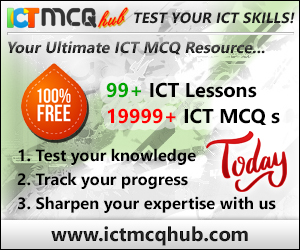
History of Computing Multiple Choice Questions (MCQ) Online Test #10
What was the key innovation of Charles Babbage's Analytical Engine?
Which programming concept did Alan Turing develop to describe the operation of the Turing Machine?
What advantage did transistors offer over vacuum tubes in computing?
Who developed the first microprocessor?
Which ancient civilization used the Ishango bone, an artifact believed to have been used for mathematical calculations?
The Antikythera mechanism is an ancient Greek device used for what purpose?
What was the name of the first personal computer introduced by IBM in 1981?
Who is known for creating the C programming language in the early 1970s?
What was the significance of the "Turing Machine" conceptualized by Alan Turing in 1936?
What was the first successful commercial application of the "Silicon Valley" technology in the 1970s?
Enter your email address & click "Subscribe Now" button to receive updates from our website via email.
- This online test, titled "History of Computing Multiple Choice Questions (MCQ) Online Test #10" is designed for individuals at the basic level and focuses on "History of Computing". It consists of 10 carefully crafted multiple choice questions (MCQs) with four options each that assess foundational knowledge and understanding of the subject matter. This test aims to help participants evaluate their grasp of key concepts related to "History of Computing".
